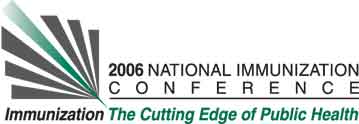Barbara H. Bardenheier1, Pascale Wortley
2, Carla A. Winston
3, Michael L. Washington
1, Megan C. Lindley
1, and Karena Sapsis
4. (1) NIP/ISD/HSREB, Centers for Disease Control and Prevention, 1600 Clifton Rd, NE, MS-E52, Atlanta, GA, USA, (2) Immunization Services Division, National Immunization Program, CDC, 1600 Clifton Rd, Mailstop E-52, Atlanta, GA, USA, (3) Health Services Research & Evaluation Branch, National Immunization Program, CDC, 1600 Clifton Road NE, MS E-52, Atlanta, GA, USA, (4) NIP/OD, Centers for Disease Control and Prevention, 1600 Clifton Rd, NE, Atlanta, GA, USA
Learning Objectives for this Presentation:
By the end of the presentation participants will be able to identify unique segments in the population (e.g. regarding immunization-related knowledge, attitudes, and behaviors (KAB) among unvaccinated seniors) to more effectively address their specific immunization concerns. Participants will also be encouraged to discuss strategies to address concerns of unvaccinated seniors who would benefit from receiving the influenza vaccination.
Background:
Although studies have been conducted to determine associations between adults' KABs associated with receiving immunizations, few have examined patterns or high-level interactions KABs.
Objectives:
To determine if differing patterns of immunization-related knowledge and attitudes exist among unvaccinated adults aged > 65 years.
Methods:
Conducted a telephone survey of Medicare beneficiaries in 2004 in five areas using stratified random sampling by zip code and oversampling by race/ethnicity to ensure sufficient numbers of interviews with Black and Hispanic seniors. Seniors who did not receive the influenza vaccine were clustered according to their immunization-related knowledge and attitudes using the FASTCLUS procedure in SAS.
Results:
Four knowledge and attitudes clusters were identified: Potentials (45%): would be vaccinated to prevent illness and spread of disease; Fearful Uninformeds (9%): are unsure if the influenza vaccine causes illness and are concerned there is something in the vaccine they are unaware of; Doubters (27%): believe influenza is a serious disease but are unsure if the influenza vaccine is efficacious and do not know if the influenza vaccine causes illness; and Misinformeds (19%): believe influenza vaccine causes illness and do not know if the vaccine is efficacious. Most of the Potentials (75%) and the Misinformeds (70%) had previously received the influenza vaccine compared with the Fearful Uninformeds (18%) and Doubters (29%).
Conclusions:
There are four distinct patterns of knowledge and attitudes among unvaccinated seniors. This information suggests use of more detailed messages that address specific constellations of concerns.
See more of Posters
See more of The 40th National Immunization Conference (NIC)

